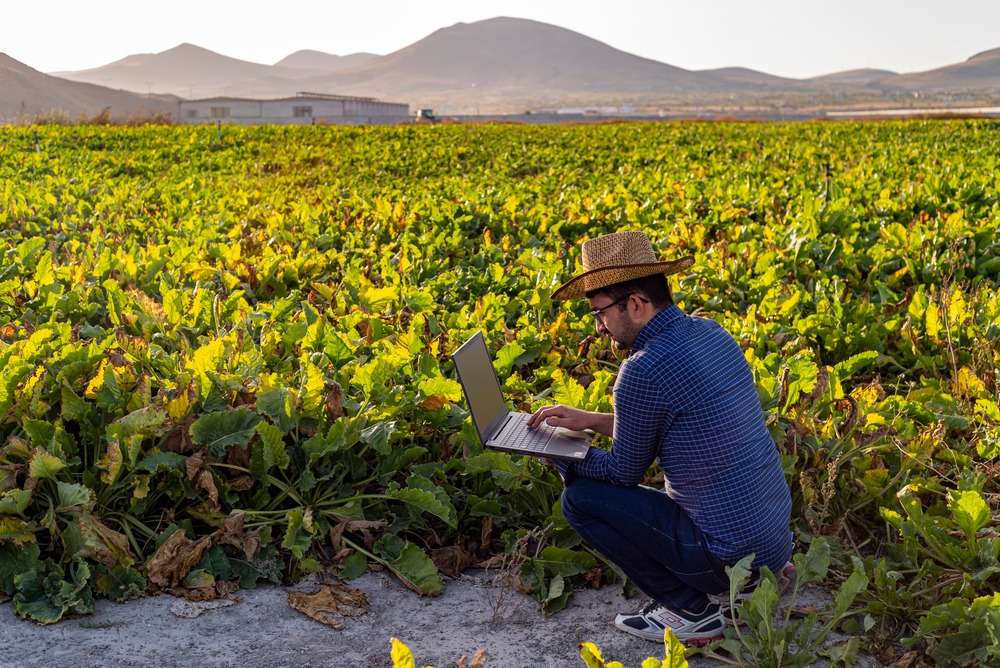According to a study by different international organizations, involving a review of 18,000 academic publications, positive results on their farms and in the environment are what motivates farmers, in the long-term, to adopt sustainable practices.

San Jose, 9 March 2021 (IICA) – Perceived benefits for their farms or the environment are what motivates farmers, in the long-term, to adopt sustainable practices, which are critical to the health of food systems in Latin America and the Caribbean. This was the conclusion of a study undertaken by researchers from various international organizations to determine what are the incentives for famers to protect ecosystems and efficiently use natural resources.
The study, which involved an analysis of 18,000 academic publications, was carried out by experts from the International Food Policy Research Institute (IFPRI), the Inter-American Development Bank (IDB), the Food and Agriculture Organization of the United Nations (FAO), the International Center for Tropical Agriculture (CIAT), the Group of Producing Countries from the Southern Cone (GPS) and the Inter-American Institute for Cooperation on Agriculture (IICA).
Although, in the short-term, economic benefits are the main incentive to adopt good practices, the situation changes when farmers’ incentives are evaluated over the long-term. In this case, farmers tend to change their practices if they perceive favorable benefits to their farms or the environment.
Sustainable practices reduce the impact of agriculture on the environment and increase its capacity to adapt to climate change, which in turn contributes to rural poverty reduction and increased food security.
The sustainable practices identified by the authors include crop rotation, multi-crop systems, the use of cover crops, no-till and reduced-till systems, integrated pest management (IPM), agroforestry systems, sustainable agroforestry practices and precision agriculture, among others.
The study shows that new production models and major reforms in agriculture and agrifood systems are necessary if the Latin American and Caribbean region wishes to better capitalize on global technology transformations that are taking place across all sectors.
Therefore, fostering the growth of agrifood systems in the region will require sustainable and integrated models that are tailored to local contexts and promote integrated management of water and soil to boost resilience, productivity and profitability.
The findings were revealed in an article published in Nature Sustainability; the study was carried out thanks to the Ceres2030 program (Sustainable Solutions to End Hunger) and was developed in cooperation with Cornell University, IFPRI and the International Institute for Sustainable Development, with funding from BMZ (Germany’s Federal Ministry of Economic Cooperation and Development and the Bill & Melinda Gates Foundation.
The authors were Valeria Piñeiro, of IFPRI; Joaquín Arias, of IICA; Pablo Elverdin, of GPS; Ana María Ibáñez, of IDB; Cristian Morales Opazo, of FAO; Steve Prager, of CIAT; and Máximo Torero, of FAO.
The researchers compiled a set of principles that public policymakers and actors in the market should follow to promote sustainable agriculture.
These principles are based on a detailed literature review of market and non-market incentives that encourage the adoption of sustainable agricultural practices and also positively impact the productivity, profitability and environmental sustainability of agricultural units.
They include the following: knowing the farmers that the policy is intended to influence; developing instruments that are simple; offering complementary support, for example technical assistance to ensure that the adoption of new agricultural practices is more accessible and sustainable; and preparing for a long-term horizon, since there may a considerable time lag before there are measurable economic and environmental outcomes.
Adoption of sustainable agricultural practices by agrifood systems in Latin America and the Caribbean is critical, given their strategic contribution to the development objectives of the region, but also, to a great extent, to those of the world.
As the major net food exporting region of the world, LAC plays a leading role in providing global food supplies, and in turn, in stabilizing international prices. Latin America and the Caribbean is also the major provider of ecosystem services to the planet, and thus, its role in environmental sustainability, the stability of the climate and mitigation of the effects of climate change is pivotal.
On the other hand, food systems contribute to generating jobs and investments, while boosting overall economic activity.
Nonetheless, food insecurity is on the rise in Latin America and the Caribbean, where poverty and inequality have increased due to the pandemic. Thus, the authors of the study maintain that a science- and evidence-based program must be implemented to formulate policies and evaluate agricultural interventions, which will be able to transform lives and the incomes of the poorest farmers in the hemisphere, most of whom are women, while also preserving the environment.
For more information, you may access the following links:
Scientific article published in Nature Sustainability (https://go.nature.com/3rl0nGM)
Policy Brief published on the IFPRI webpage (https://bit.ly/2OrqyNK)
Article published on the IICA Blog (https://bit.ly/389vHB4)
More information:
Institutional Communication Division, IICA.
comunicacion.intitucional@iica.int











